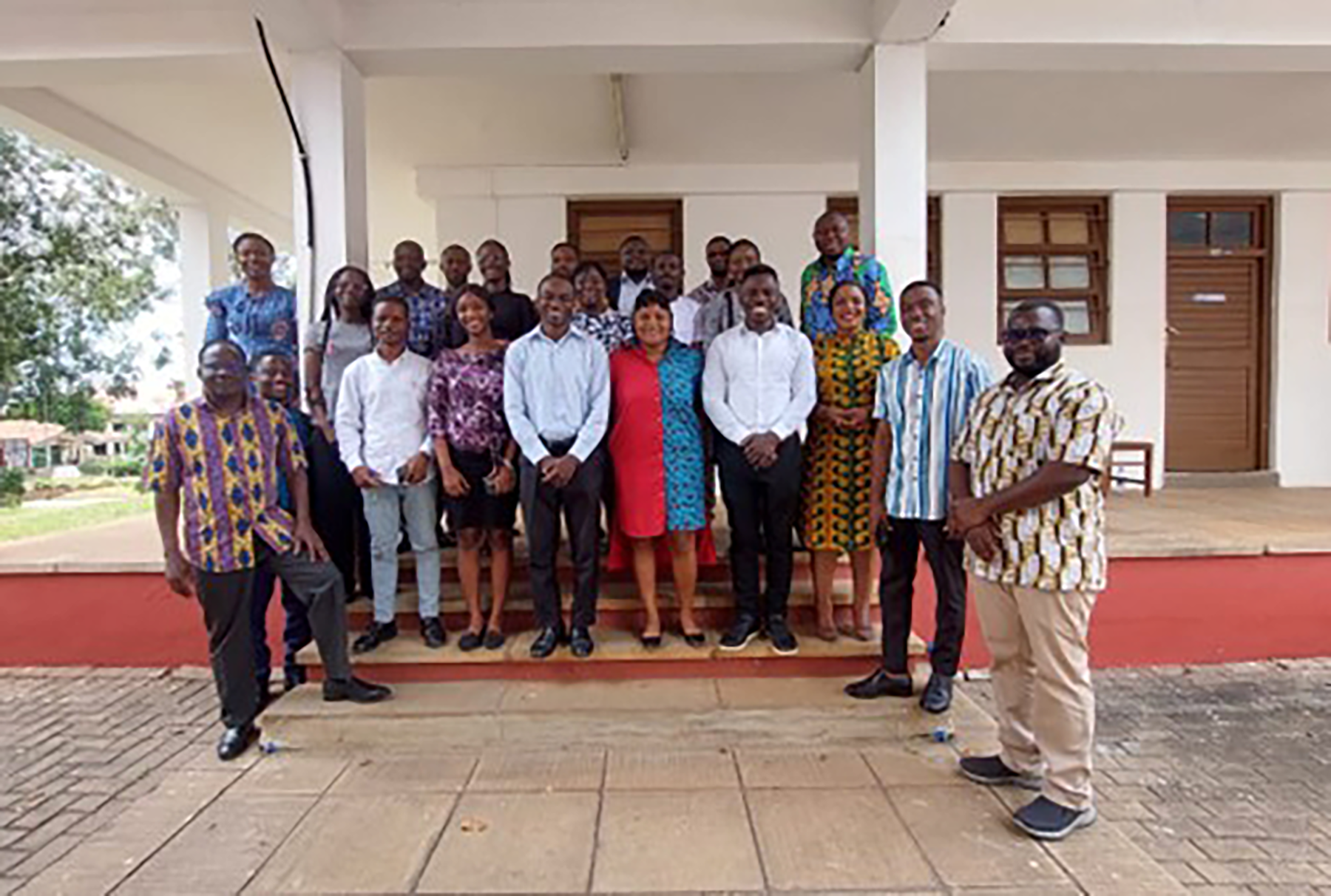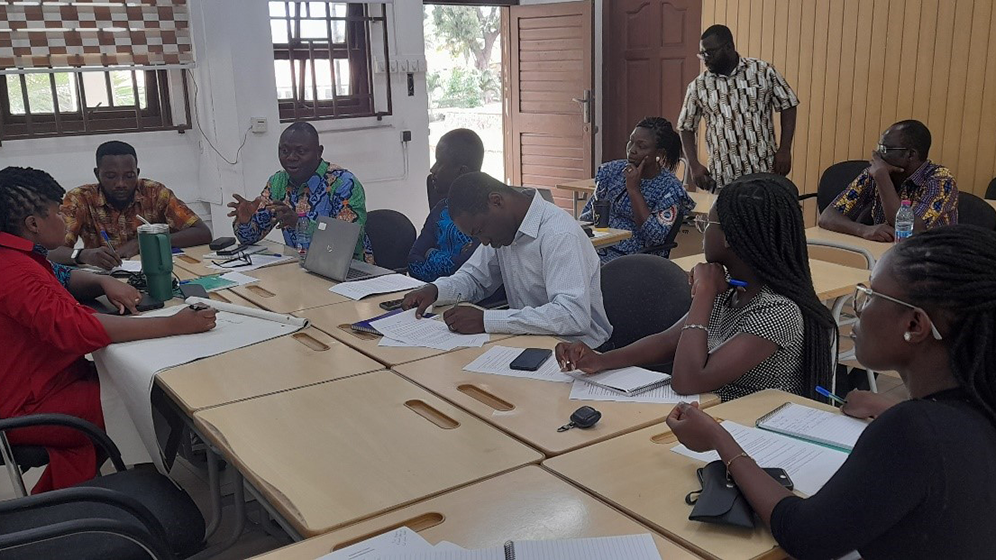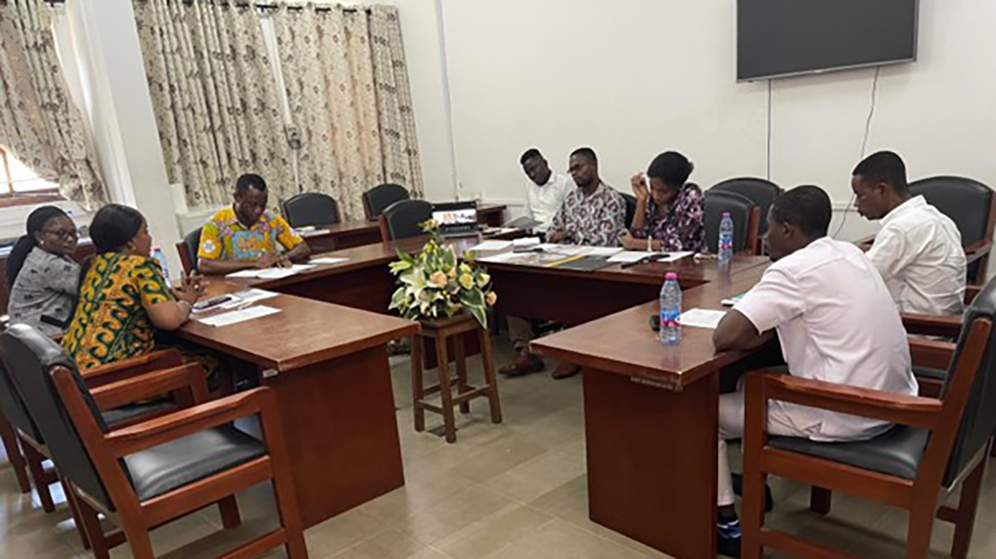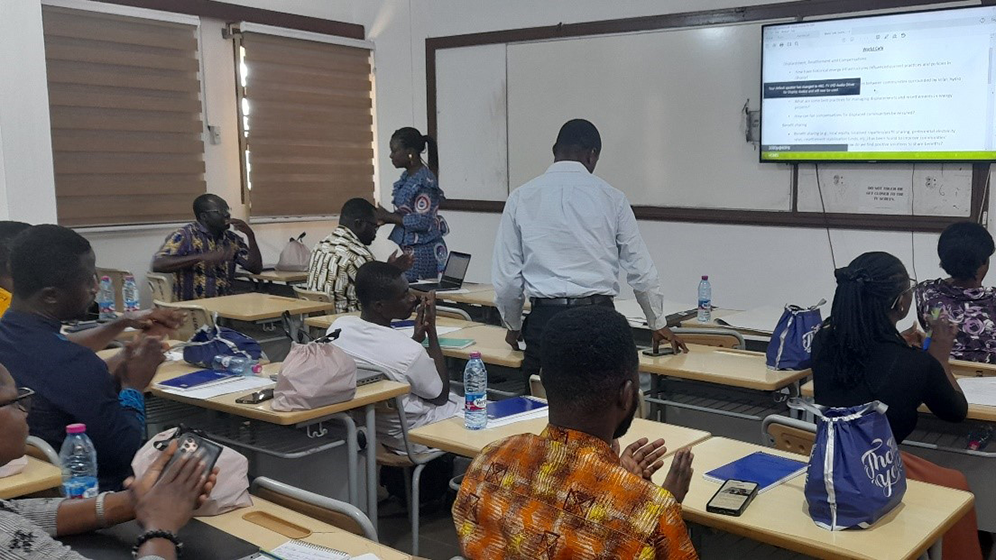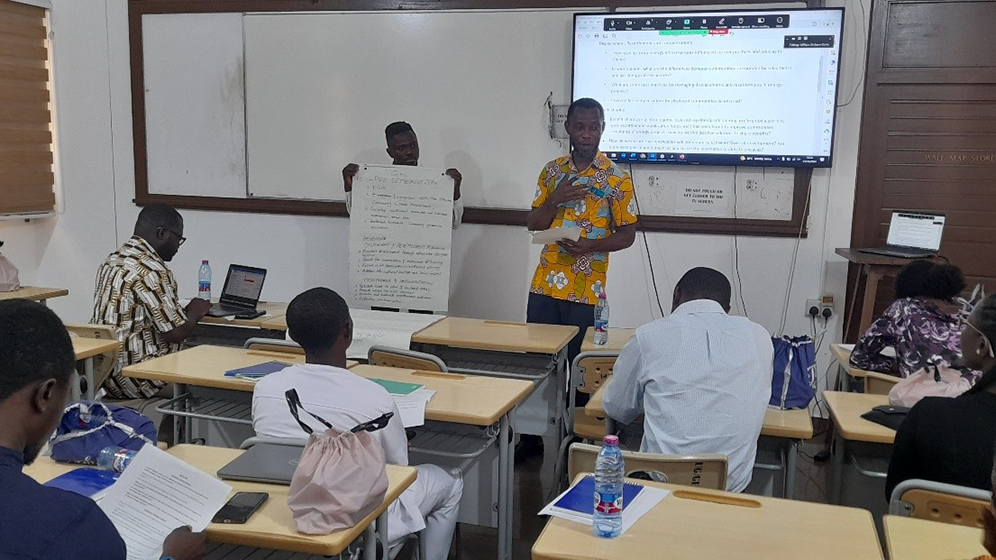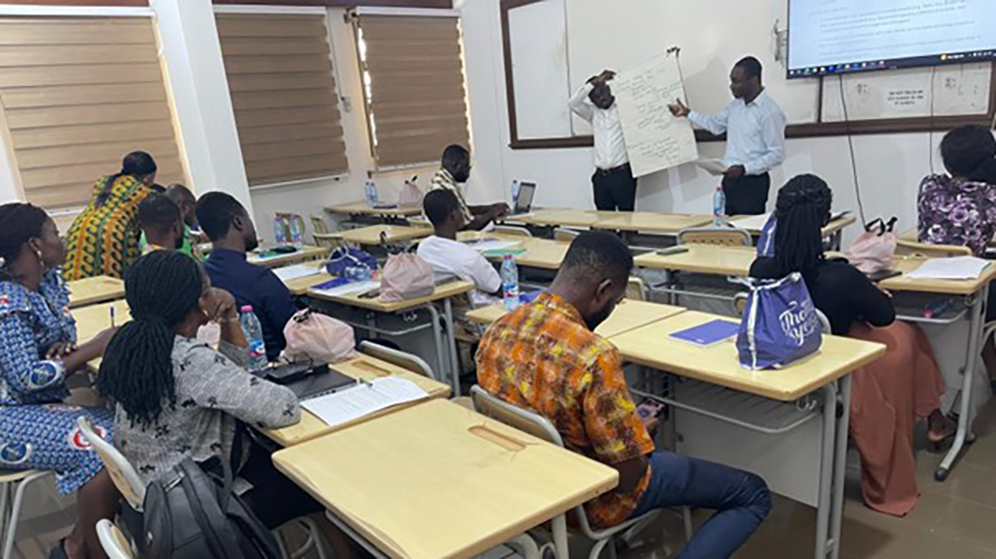Workshop on Energy Infrastructures and Community Livelihoods in Ghana
William Otchere-Darko and Raymond Abdulai from APL lead this British Academy funded project
6 November 2024
The Energyscapes project – funded via the British Academy Knowledge Frontiers grant – is led by William Otchere-Darko and Raymond Abdulai alongside other UK and Ghanaian research partners (Pauline Destrée, Austin Ablo, Helen Akolgo-Azupogo and Deborah Darko). The project examines the multifaceted development impacts of energy projects on communities in Ghana, specifically communities neighbouring hydro-electric, petroleum and solar energy projects.
On 23 October, members of the project team conducted an inception workshop in Accra (University of Ghana) to share preliminary literature review findings on energy infrastructures and community livelihoods in Africa and its implications for Ghana. In attendance were policymakers, researchers, corporate and think-tank representatives from the Energy Commission, Petroleum Commission, ENI Ghana, Community Land Development Foundation, African Centre for Energy Policy and various universities. The workshop began with a presentation of preliminary research findings by the Energyscapes team on displacement processes linked to energy infrastructure projects in selected African contexts and its impacts on land use, tenure, and access for different groups.
Subsequently, roundtable discussions were held with attendees, integrating lessons and responsive practices from the African cases to generate insights for the Ghanaian context. The discussions highlighted themes such as displacement, resettlement and compensations, benefit sharing, energy transition and collaborative learning across institutions.
This is the first in a series of workshops. In 2025 the project team plans to organise additional events with community members, local groups and energy professionals in Ghana to gather more evidence. Such events and dialogues can hopefully contribute to shaping sustainable energy governance in Ghana by creating shared understanding and responding to the multidimensional challenges communities face near energy infrastructures.
